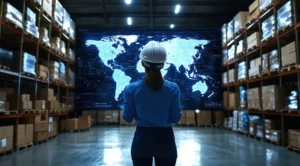On April 19th, 2023, the European Parliament adopted the new EU Deforestation Regulation (EUDR), clearing the way for it to move forward. Next, the law will be formally endorsed by the Council of the European Union and will enter into force 20 days later. From that point, companies regulated under the new law will have 18 months to become compliant.
Deforestation has long been recognized as a significant contributor to climate change, biodiversity loss, and other environmental and social impacts. Imports to the European Union (EU) play a major role in deforestation on a global scale. In an effort to address this critical issue, the EUDR strives to lessen the effects of deforestation and forest degradation associated with the importation of certain commodities.
What is the EU Deforestation Regulation?
The new EU Deforestation Regulation is part of the EU Green Deal, a broader strategy to promote sustainable production and consumption, protect biodiversity, and mitigate climate change. The regulation requires companies to carry out due diligence to ensure that the commodities they import do not contribute to deforestation or violate the rights of indigenous peoples and local communities. Companies are also required to develop and implement appropriate measures to address any identified risks or adverse effects of deforestation.
What commodities and products are covered by the EUDR?
The law will replace the EU Timber Regulation (EUTR) and confront deforestation caused by agricultural development related to the newly regulated commodities, including cocoa, coffee, soy, wood, palm oil, rubber, and cattle
Assessing supply chain risks through due diligence
One of the key aspects of the new regulation is the requirement for companies to conduct risk assessments to identify and mitigate potential deforestation risks in their supply chains. This involves assessing the origin and impact of the commodities they import, as well as the sustainability and legality of the production practices employed by their suppliers. Companies are also expected to engage with their suppliers and other stakeholders to address any identified risks and take necessary measures to prevent deforestation.
Enhancing transparency and accountability: The role of reporting in the EUDR
The new EU Deforestation Regulation also places a strong emphasis on transparency and reporting. Companies are required to publicly disclose information on their due diligence measures, as well as the results of their risk assessments and the effectiveness of their mitigation efforts. This increased transparency aims to hold companies accountable for their supply chain practices and encourage them to take meaningful action to combat the effects of deforestation and forest degradation.
SupplyShift has been helping companies understand deforestation risk in their supply chains for over a decade. Our deforestation solutions range from standard risk assessments of tier 1 suppliers to mapping supply chains to identify upstream suppliers. Our customers use this information to comply with legal requirements, make progress on public commitments related to deforestation, and build a stronger, more sustainable supply chain.
Get in touch, get prepared, and get engaged with your supply chain.
SupplyShift was acquired by Sphera in January 2024. This content originally appeared on the SupplyShift website and was slightly modified for sphera.com.





